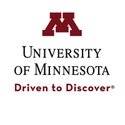
Grinnell College
1227 Park Street, 1st Floor, Grinnell, IA 50112-1690, USA


position: 60
What is the history of Grinnell College?
Grinnell College, a private liberal arts institution, was founded in 1846 by a group of Congregationalists inspired by the abolitionist movement. Initially established in Davenport, Iowa, the college faced conflicts with the city council and subsequently relocated to Grinnell, Iowa, unofficially adopting the name of its new home. The college was named after Josiah Bushnell Grinnell, a Congregationalist minister and abolitionist who played a significant role in its founding.
In its early years, Grinnell College experienced several setbacks, including the Civil War, which claimed the lives of many students and professors. However, the college resumed growth in the decade following the war, officially admitting women as candidates for degrees and expanding the curriculum to include new areas of academic studies, such as science and modern languages.
Throughout its history, Grinnell College has demonstrated a commitment to social justice and innovation. In the early 20th century, the college established a "5th year travel-service program," which preceded the establishment of the Peace Corps by many years. Additionally, Grinnell College has introduced other innovative programs, including first-year tutorials, cooperative pre-professional programs, and programs in quantitative studies and the societal impacts of technology.
Grinnell College is strongly committed to diversity and inclusion. With the fifth highest endowment-to-student ratio of American liberal arts colleges, the college is able to offer need-blind admissions and substantial academic merit scholarships, promoting socioeconomic diversity. Furthermore, Grinnell College provides funding for unpaid or underpaid summer internships and professional development opportunities, such as international conferences and professional attire.
In recent years, Grinnell College has faced challenges, including declining enrollment and financial pressures, which are common among small liberal arts colleges. To address these issues, the college has implemented new programs aimed at attracting and retaining students.
Grinnell College's dedication to social justice and its rigorous academic programs continue to draw students from around the world. As the college looks to the future, it will undoubtedly encounter new challenges and opportunities, but its commitment to providing a high-quality education for its students will remain steadfast.
What are the faculties and departments at Grinnell College?
Grinnell College provides a liberal arts education that enables students to create their own academic journey. The college does not have a core curriculum, general education, or distribution requirements, allowing students the freedom to explore and specialize in various fields. Among the numerous departments and majors available at Grinnell College are Art & Art History, Chinese and Japanese, Classics, English, French and Arabic, General Literary Studies, German Studies, Humanities, Music, Philosophy, Religious Studies, Russian, Spanish, and Theatre and Dance. Additionally, students can opt for an Alternate Language Study Option (ALSO).
The individually advised curriculum at Grinnell College allows students to customize their education according to their interests. They collaborate with their adviser to develop a unique curriculum tailored to their needs. The college fosters creativity and innovation, urging students to delve into new fields and different philosophies.
Students at Grinnell College are not required to declare a major until the latter half of their sophomore year, providing ample time to explore various options or concentrate on specific interests from the outset. The college also offers global programs aimed at language development, intercultural exchange, and community engagement.
As students progress in their chosen area of study, academic resources are available to support their growth and development. Grinnell College provides multiple advisers, resources, and networks to assist students at every stage of their academic journey. The college is home to a wide array of organizations, partnerships, programs, and more, offering additional opportunities and mentors for students to cultivate their intellectual interests. Various labs cater to diverse learning styles, research topics, and cross-disciplinary approaches, while the college's libraries house a wealth of information for students to explore.
What is the location of Grinnell College?
Grinnell College is situated in the small town of Grinnell, Iowa, in the Midwest region of the United States. The college's address is 1103 Park Street, Grinnell, IA 50112-1690, and its official phone number is 269-4000. Grinnell is easily accessible by car from various major cities in the region, such as Des Moines, Omaha, Kansas City, Madison, Chicago, Minneapolis-St. Paul, and St. Louis. The campus is conveniently located just a few blocks from Highway 146 on Sixth Avenue.
For prospective students traveling from outside the Midwest, the nearest airport is Des Moines International, which is approximately an hour's drive from Grinnell College.
What is the mission and vision of Grinnell College?
Grinnell College, established in 1846, is dedicated to providing a liberal arts education through free inquiry and open exchange of ideas. The institution aims to produce graduates who possess strong critical thinking, persuasive communication, and the ability to evaluate their own and others' ideas. Furthermore, Grinnell College seeks to prepare students to acquire new knowledge and utilize their skills for the betterment of society.
The college places a high value on excellence in liberal arts education, diverse learning methods, and creative and critical thinking fostered by the free exchange of ideas. The faculty prioritizes exceptional teaching, and the institution supports active scholarship in both traditional and interdisciplinary fields. Grinnell College is committed to need-blind admission for students with strong academic potential, ensuring a diverse community on campus.
In addition to its academic mission, Grinnell College emphasizes the importance of a residential campus that promotes close interactions among students, faculty, and staff. The institution fosters personal, egalitarian, and respectful relationships within the community and meets the full demonstrated financial aid needs of admitted and continuing students.
Grinnell College's Center for Careers, Life, and Service plays a crucial role in empowering students and alumni to lead lives of meaning and purpose. The center's vision encompasses all Grinnellians and offers a comprehensive model that includes career communities, global fellowships and awards, service and social innovation, and employer engagement. Core values of the center include student-centeredness, diversity, equity, inclusion, expertise, collaboration, and innovation.
The center's learning objectives focus on self-reflection, the ability to apply observations and discoveries, acquiring experiences and skills for meaningful post-graduate pathways, effective and persuasive self-presentation, identifying and managing relationships with stakeholders, and evaluating the ethical, societal, and professional implications of choices and actions.
What is the accreditation of Grinnell College?
Grinnell College has held accreditation from the Higher Learning Commission (HLC) since 1913, ensuring that the institution meets the necessary Criteria for Accreditation. To maintain this status, Grinnell College undergoes periodic evaluations by the HLC. In November 2018, a team of peer reviewers from the HLC visited the college to assess its ongoing ability to meet the accreditation criteria. During this evaluation, the reviewers identified areas for improvement, specifically in the assessment of student learning and support for the college's staff. Following this review, Grinnell College's accreditation was reaffirmed by the HLC in a special campus memo from the President in 2019.
Grinnell College Rankings
30 Most Popular Colleges in 2023-2024
45 Best Private Colleges in 2023-2024
46 Most Affordable Colleges in 2023-2024
60 Best Colleges in 2023-2024
218 Best Value Colleges in the Midwest in 2023-2024 US
839 Best Value Colleges in 2023-2024
Research.com Awards
Grinnell College Profile - Basic Information
Name of the institution
Grinnell CollegeLevel of institution
Four or more yearsGranulation by control over the institution (public/private)
PrivateSchool type
Four-year collegeSetting type
Town: RemoteCalendar system
SemestersFoundation year
1846Institution size category
1,000 - 4,999Main student body
CoeducationalInstitutional Category
Degree - granting, primarily baccalaureate or aboveGrinnell College Programs and Degrees
 Bachelor's degree
Bachelor's degree Other degree
Other degree Master's degree
Master's degree Certificate of at least 2 years, but less than 4 years
Certificate of at least 2 years, but less than 4 years Associate's degree
Associate's degree Certificate of less than 1 year
Certificate of less than 1 year Postbaccalaureate certificate
Postbaccalaureate certificate Certificate of at least 1 year, but less than 2 years
Certificate of at least 1 year, but less than 2 years Post-master's certificate
Post-master's certificate Doctor's degree - other
Doctor's degree - other Doctor's degree - research/scholarship
Doctor's degree - research/scholarship Doctor's degree - professional practice
Doctor's degree - professional practiceAlumni Salary for Grinnell College Degrees
Degrees
Biological and Biomedical Sciences
$25,674Computer and Information Sciences and Support Services
$70,658English Language and Literature/Letters
$20,499Foreign Languages, Literatures, and Linguistics
$23,718Liberal Arts and Sciences, General Studies and Humanities
$29,239Social Sciences
$38,690























